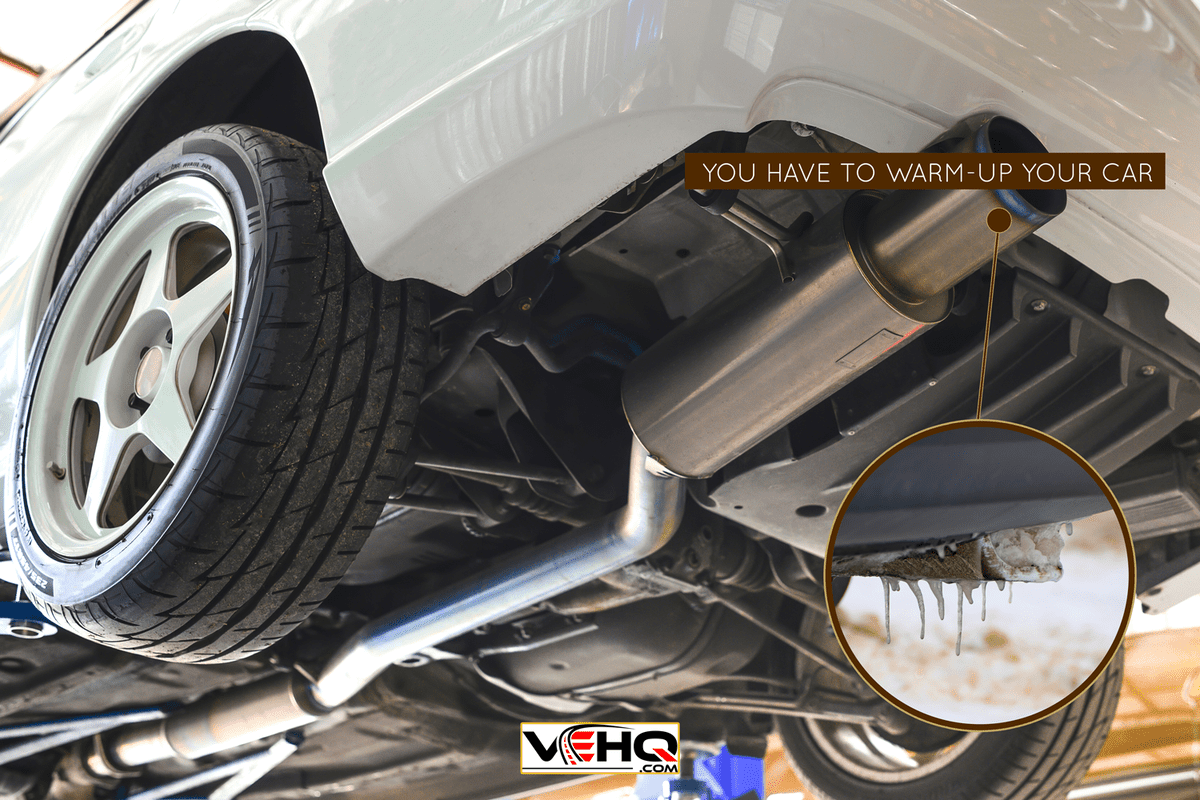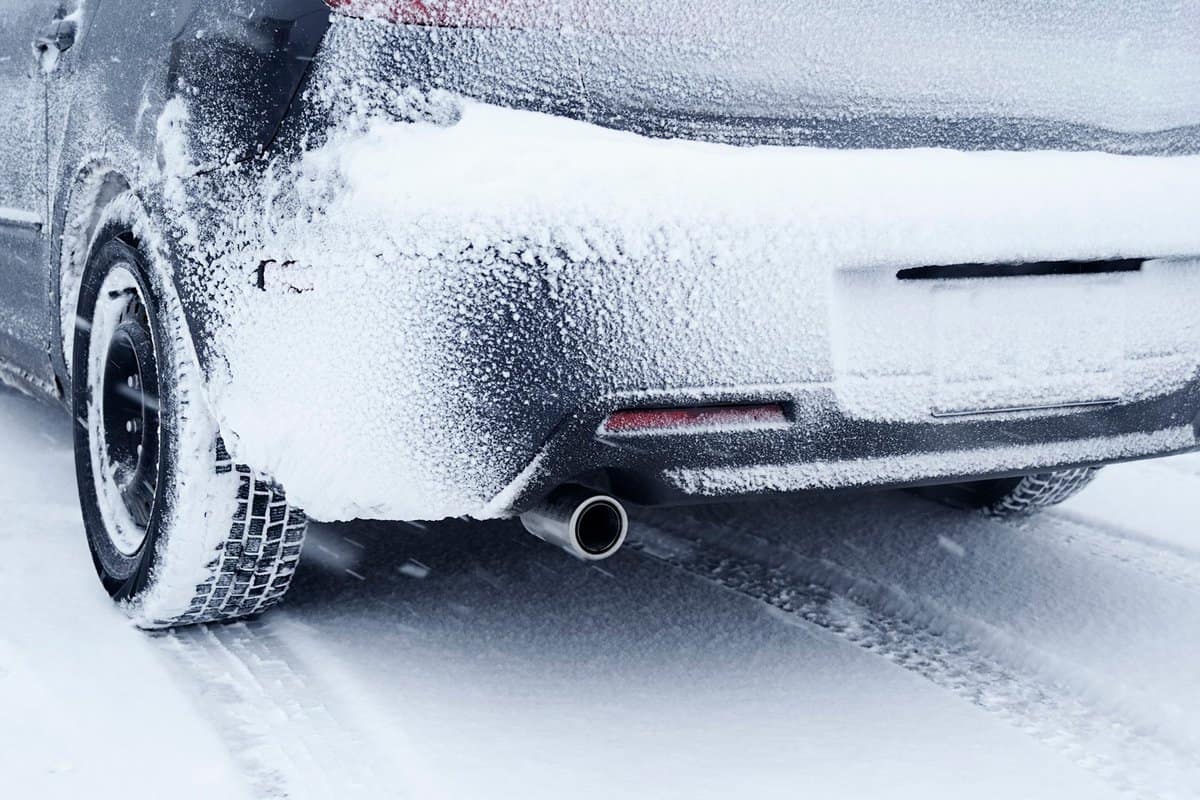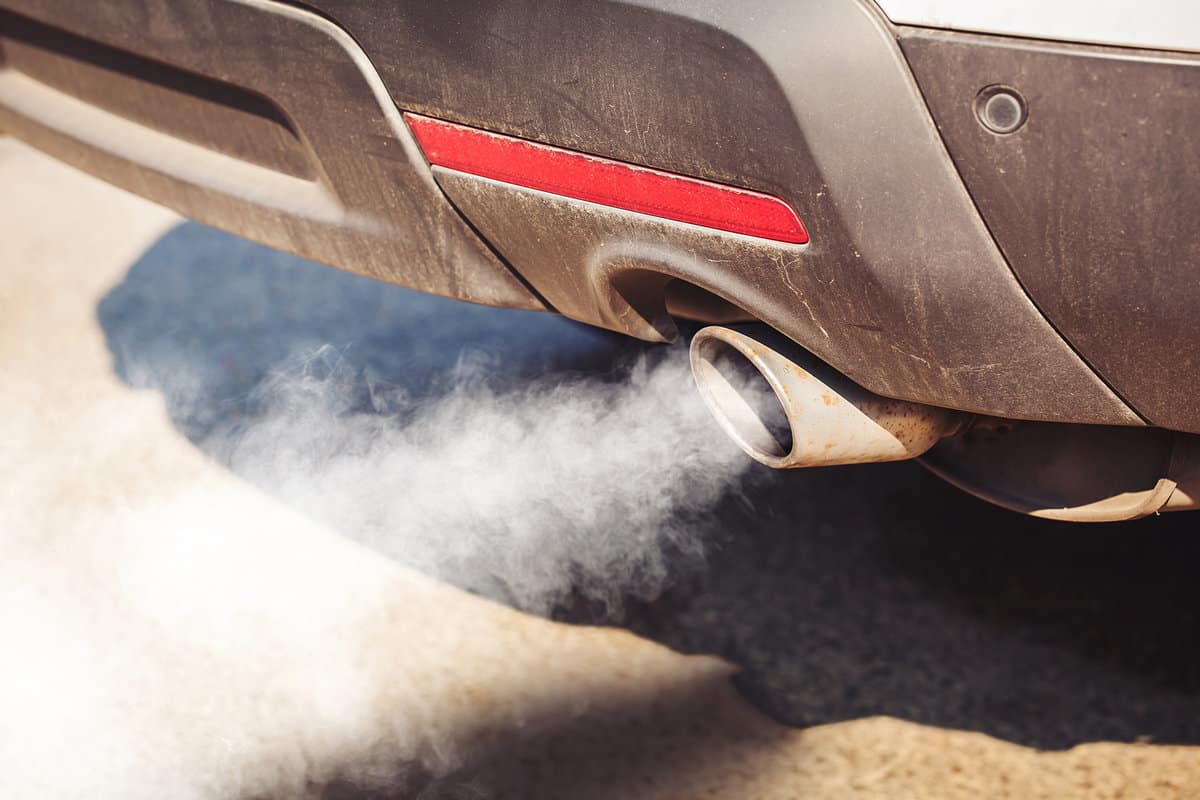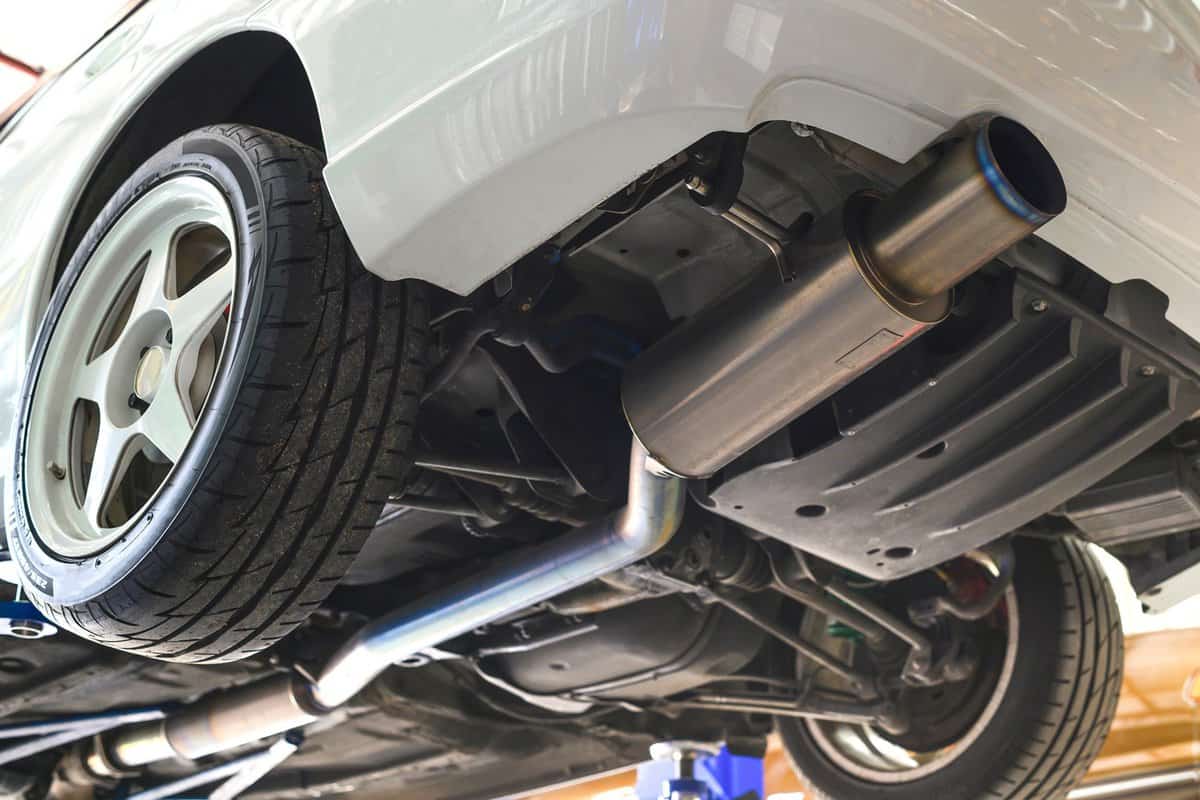The exhaust pipe plays a vital role in removing toxic gases from your engine. However, exhaust pipes can get clogged with ice during winter. When this happens, you may be wondering what to do. Fortunately, we have consulted experts in this field, and here is what they have to say.
If your exhaust pipe gets clogged with ice, all you have to do is warm-up your car. This helps in melting the ice. However, it is not advisable to use salt solution or warm water to clear your exhaust pipe.
Ice build-up in the exhaust pipe prevents exhaust gases from exiting the combustion chambers. Keep reading to get detailed information on how to tackle the problem of clogged exhaust pipes.

What Should I Do If My Exhaust Pipe Is Clogged With Ice?

Your car can be covered in snow. When this happens, you might want to give the windshield a quick sweep so you can see. However, if the exhaust pipe is clogged, it is best to clear out the ice. The following are things you can do:
The exhaust fumes have nowhere to go if your exhaust is clogged with ice. These harmful gases will be diverted into your vehicle, which poses a risk to your health.
Exhaust gases can result in carbon monoxide poisoning, a potentially lethal condition that cannot be detected by smell. If your exhaust becomes clogged with ice, the first thing you should do to ensure your safety and the safety of your passengers is to make sure the exhaust pipe is free.
Warming Up Your Vehicle
Firstly, turn on your car to let the engine's warmth and the exhaust's heat melt the ice. It is advised that you remain inside the vehicle throughout this process since it may take up to 15 minutes for the exhaust to get warm enough.
Once your exhaust is clean, you can clear the snow and ice off the area around your tires. Using a shovel makes this process much simpler, therefore keeping one in your trunk throughout the snowy season is a good idea. There are small shovels that are ideal for this. Make space for the tires to move back and forth by clearing a few feet in front and behind them.
Instead of waiting for the ice to melt with heat, some car owners use salt water solutions to dissolve the ice quickly. Although the ions in salt make it more difficult to refreeze by lowering the freezing point of water, it not good for the exhaust system.
Salt works well to melt ice off of roadways, but it is also very corrosive and can harm your exhaust system. It is common to see drivers' unclogging' their exhaust with a bucket of hot water. The ice cannot be totally melted quickly enough to prevent the remaining water from freezing again.
What Happens If Exhaust Pipe Is Clogged With Ice?

It's not a good idea for you to ignore how their vehicle's exhaust is functioning throughout the winter. Your engine and exhaust system work together, making them equally crucial components.
Your engine will be affected if your exhaust pipe becomes blocked with ice. Therefore, it's critical to identify and deal with the problem as soon as possible. The following may occur due to the build-up of ice on your exhaust pipe:
Exhaust Fumes Become Smelly
If you constantly pay attention to your exhaust, you will be able to tell when the color and smell of the gases coming from the exhaust tailpipe changes.
If an exhaust pipe becomes clogged, more unclean gases will be trapped in the chamber. As they build up, some of these gases manage to escape, and they may be quite smelly.
Power Loss
There are several causes of engine power loss, and a clogged exhaust pipe is one of them. When the exhaust pipe becomes blocked, it will negatively impact how well the engine runs by stopping dangerous gases in the engine cylinders from escaping, which causes those gases to be recirculated back into the engine.
The engine would have trouble operating as effectively as it should if the gases were returned to it, resulting in power loss.
Car Gets Noisy
A functioning exhaust pipe helps to reduce the amount of noise that your car's exhaust makes. You will notice a loud, strange noise coming from your car when the pipe is blocked with ice. A clogged exhaust pipe typically results in a loud, cranking sound when you try to accelerate or start your automobile.
What Does A Clogged Exhaust Sound Like?
If your engine is unusually noisy, it is one of the first indications of exhaust issues you should look out for.
A clogged exhaust manifold pipe will result in an exhaust leak that produces a hissing or tapping sound. When you drive the car or give it a cold start, the noise will be very loud.
Can a Clogged Exhaust Cause Overheating?
A clogged exhaust can cause overheating. Clogged exhaust reduces the natural flow of exhaust gases from an automobile's engine, increasing the amount of back pressure therein, ultimately raising the risk of overheating.
The pistons in an automobile's engine push exhaust gases out of the engine, through the exhaust system, and out the tailpipe. Any obstacle or blockage along the path can seriously harm a car's engine.
Does Car Exhaust Melt Ice?
Car exhaust can melt ice. Depending on the fuel, the general temperature of vehicle exhaust is around 500F. At five pressure, the flow rate is approximately 115 CFM.
These figures offer enough heating potential to melt 18,400 cubic inches of snow in 15 minutes during a car's typical winter warm-up period.
Snow needs 144 BTU of energy per pound to melt when the temperature is raised from 22F to above 32F. Although some of this heat would be lost to the surroundings and the system's components, the exhaust would effectively melt snow and ice.
Can Ice Damage Exhaust?

Ice can damage the exhaust. Pressure builds up inside a car's engine when it is clogged with ice, which compromises the natural combustion that takes place. Combustion takes place in a healthy engine at the right moments and in the right amounts.
So, when ice clogs an exhaust, it interferes with the engine's regular combustion processes and makes the engine work harder. This increases an engine's working temperature and, if ignored, can damage the car engine.
How Much Does It Cost to Fix An Exhaust Pipe?
The amount you will have to pay to repair a part on your car depends on how badly damaged the part is as well as the cost of labor. Numerous variables affect labor, such as your location and anticipated completion time.
However, the price of replacing an exhaust pipe ranges from $700 to $800 on average. Between $80 and $100 is the projected cost of labor, while $733 to $736 is the estimated cost of parts.
It is recommended to keep an eye out for signs of an exhaust blockage and stop them before they might damage other parts of your automobile because the cost rises a lot. If you don't address the issue, parts like your engine, transmission, and radiator can sustain get damage.
Can You Duct Tape An Exhaust Pipe?

Fixing damaged exhaust mufflers or exhaust pipes with duct tape is not advisable. Fabricated from cotton mesh, duct tape has a rubber-based adhesive on the underside and is protected with polyethylene, a form of plastic. Duct tape melts and ignites when it is heated up.
However, if you choose to use it, ensure the area is very clean before applying. You can locate the leak's specific location with the aid of a chemical like soapy water, after which you can correctly fix the hole.
The use of duct tape is merely a short-term fix. Having your vehicle fixed by a professional is recommended for a long-lasting repair.
To Wrap Up
You can unclog your exhaust pipe by just warming up your car. But if you can't clear the pipe, you can contact a professional for help. Avoid using warm or hot water to unclog your exhaust pipe. Also, there is a higher chance that it won't work.
If you enjoyed reading this post, here are similar articles you may like:
Car Exhaust Smells Like Paint Thinner - What Could Be Wrong?
